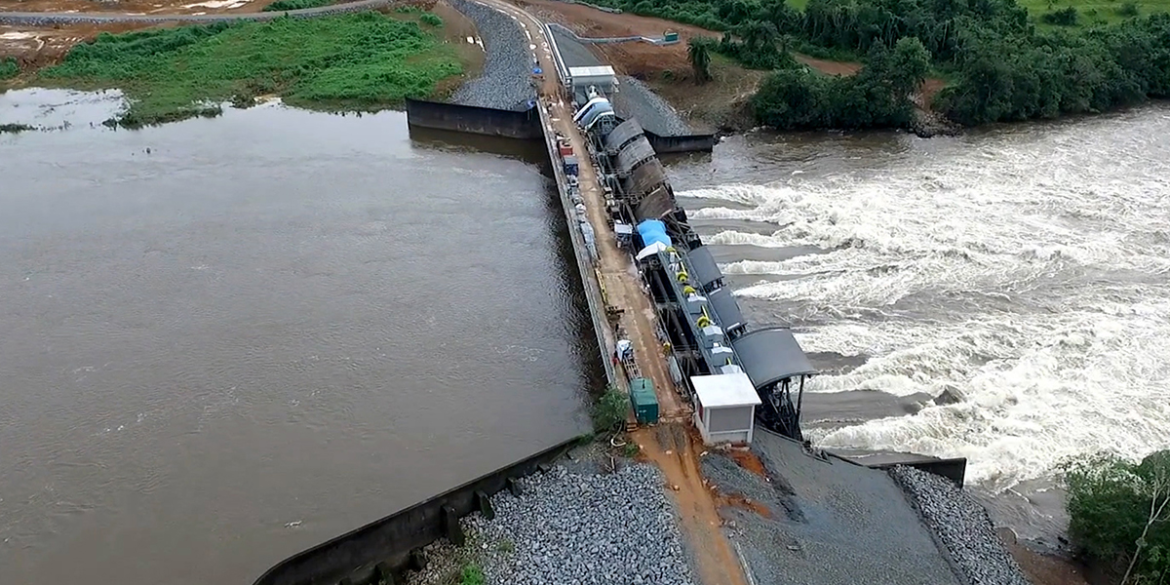Liberia has secured funding for a solar PV plant and the expansion of the Mount Coffee Hydropower Plant. This week, the World Bank approved a second $45 million disbursement for Liberia’s Renewable Energy Solar Power Intervention Project (RESPITE). The hydropower plant’s capacity will increase from 88MW to 129MW, with a total project budget of $96 million. The Mount Coffee facility, originally built in the 1960s and rebuilt post-civil war, is fueled by the St. Paul River.
Liberia’s Vice President Jeremiah Koung met with Ashish Khanna, World Bank’s Practice Manager for West and Central Africa, at the 25th Africa Energy Forum in Barcelona. Khanna praised Liberia’s energy sector progress, noting the country reduced distribution losses by 30% and added over half a million new household connections. These achievements make Liberia attractive for private-sector investments.
Vice President Koung emphasized the need for immediate interventions to address electricity outages as the dry season approaches. In April, the Liberia Electricity Company (LEC) announced the Mount Coffee expansion and the construction of Liberia’s first utility-scale solar power plant, with a 20MWp capacity, located at Mount Coffee. The procurement process for the solar plant is 50% complete, with contract awards expected by Q2 2024.
LEC also plans a new hydropower plant upstream of the St. Paul River, known as SP2, with an anticipated capacity of about 150MW. The feasibility study should be completed by Q4 2024. SP2 will be part of a planned cascade of hydropower dams along the St. Paul River, serviced by a future storage reservoir at the Via and St. Paul Rivers confluence. The project is estimated to cost around $550 million, with the World Bank committed to funding approximately 50% of the cost.
In 2022 and 2023, LEC connected 35,801 and 42,899 new electricity users under donor-funded projects. LEC aims to sustain reductions in commercial losses, revenue growth, and new customer connections. The company has set ambitious targets of 22.2% commercial losses, 377GWh in sales, and a financial loss of only $12.5 million. LEC has also signed a framework meter supply contract with two manufacturers for the delivery of 300,000 meters over three years.
The World Bank Group’s Country Climate and Development Report (CCDR) for Liberia, published in March, states that the country is still rebuilding its electricity infrastructure. The Mount Coffee Hydropower Plant (88MW) and three heavy fuel oil (HFO) thermal plants (38MW) currently meet Liberia’s short- to medium-term needs during the wet season. However, because Mount Coffee generation is highly seasonal, the total available generation capacity falls to about 48MW in the dry season.
Access to electricity in Liberia increased from 5% to 30% between 2010 and 2021, with urban areas seeing a 45% access rate compared to 8% in rural areas. The expansion of the Mount Coffee Hydropower Plant and the new solar PV plant are expected to significantly improve Liberia’s energy sector and attract further investment.
Liberia’s focus on expanding renewable energy capacity is crucial for meeting growing energy demands and ensuring a stable supply during both wet and dry seasons. With the support of the World Bank and other partners, Liberia is poised to make significant strides in its energy infrastructure development, benefiting both urban and rural communities.
This strategic investment in renewable energy not only addresses immediate energy needs but also positions Liberia as a leader in sustainable energy development in sub-Saharan Africa. The collaboration between the Liberian government and international partners underscores the importance of continued investment and innovation in the energy sector to drive economic growth and improve living standards across the country.
Source: ESI Africa



